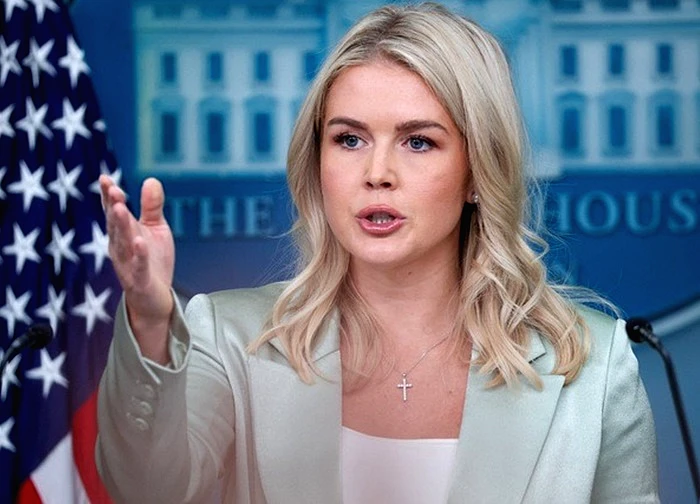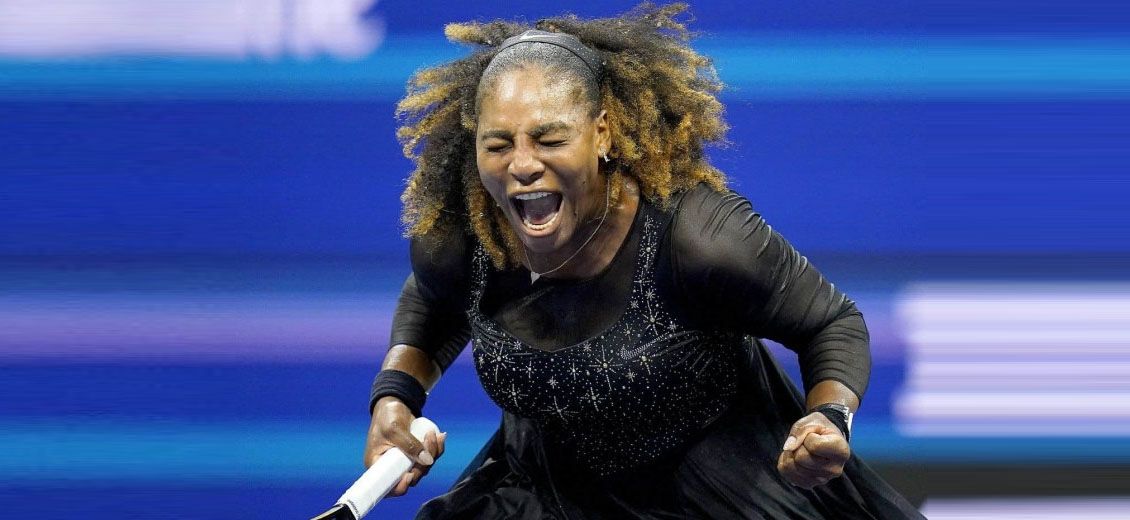🔥 BREAKING NEWS: Karoline Leavitt TELLS NFL TO CANCEL Bad Bunny's Super Bowl Halftime Show Karoline Leavitt criticized the NFL's controversial decision, calling it "a political stunt to smear patriots and turn the Super Bowl into a cultural weapon for the left." In a scathing on-air analysis, Karoline Leavitt bluntly declared: "Bad Bunny is not music — it's a conspiracy. The NFL has turned America's biggest stage into a tool to promote globalism and humiliate its loyal fans." Karoline Leavitt call immediately went viral, sparking widespread outrage on social media. The NFL quickly issued a statement, asserting that... READ MORE BELOW...bechill
In a blistering broadside that's reverberating from the White House briefing room to the raucous tailgates of America's heartland, White House Press Secretary Karoline Leavitt has unleashed a torrent of fury against the NFL's freshly announced decision to crown Puerto Rican reggaeton sensation Bad Bunny as the headliner for the 2026 Super Bowl halftime show. Delivered with the precision of a quarterback's audible during a fourth-and-long, Leavitt's on-air takedown—aired live on Fox News during a heated press gaggle amid the ongoing government shutdown standoff—didn't mince words or pull punches. "This isn't entertainment; it's a political stunt to smear patriots and turn the Super Bowl into a cultural weapon for the left," she thundered, her voice cutting through the static like a referee's whistle. "Bad Bunny is not music—it's a conspiracy. The NFL has turned America's biggest stage into a tool to promote globalism and humiliate its loyal fans." The declaration, laced with the unfiltered zeal that's made Leavitt a darling of the MAGA faithful since her rapid ascent to Trump's inner circle, immediately detonated across social media, igniting a digital inferno of hashtags, memes, and manifestos that have conservatives from coast to coast calling for boycotts, congressional hearings, and everything in between. As #CancelBadBunny surges past #SuperBowlLX on X, with over 2 million impressions in the first 24 hours, the NFL finds itself scrambling to defend what was meant to be a triumphant reveal of Latin flair on football's grandest canvas.
The spark for this culture-war conflagration traces back to September 28, 2025, when the NFL, in partnership with Apple Music and Jay-Z's Roc Nation, dropped the bombshell during halftime of the Green Bay Packers-Dallas Cowboys showdown on Sunday Night Football. Bad Bunny—born Benito Antonio Martínez Ocasio in Vega Baja, Puerto Rico, and the 31-year-old architect of a reggaeton empire that's shattered Spotify records and Billboard charts alike—was unveiled as the star for Super Bowl LX on February 8, 2026, at Levi's Stadium in Santa Clara, California. Teased with a slick 30-second clip set to his sultry track "Callaíta," the announcement painted Bunny as a bridge-builder: a global icon whose trap-infused anthems like "Tití Me Preguntó" and "Debi Tirar Más Fotos" have elevated Latin music from niche playlists to pop-culture pantheons, amassing billions of streams and a fervent fanbase spanning borders and generations. "What I'm feeling goes beyond myself," Bunny proclaimed in his official statement, a poetic nod to his roots. "It's for those who came before me and ran countless yards so I could come in and score a touchdown… this is for my people, my culture, and our history. Ve y dile a tu abuela, que seremos el HALFTIME SHOW DEL SUPER BOWL." Roc Nation's Jay-Z hailed it as an honor to spotlight Bunny's "meteoric rise," while NFL execs touted his "unique ability to bridge genres, languages, and audiences." Produced by Emmy-winner Jesse Collins and directed by Hamish Hamilton—the same team behind Kendrick Lamar's record-shattering 2025 spectacle that drew 133.5 million viewers—this promised to be a history-maker: the first halftime show potentially performed entirely in Spanish, a vibrant explosion of salsa rhythms, LED-lit dancers, and pyrotechnic salutes to Puerto Rican pride.

But to Leavitt and her ideological allies, this wasn't a celebration of diversity—it was a deliberate provocation, a Trojan horse for "woke" agendas that sideline hardworking American fans in favor of borderless multiculturalism. Leavitt, the 28-year-old New Hampshire firecracker who parlayed her role as Trump's national press secretary into a White House powerhouse post-2024 reelection, has never shied from the fray. A former congressional candidate and Turning Point USA alumna, she's built her brand on eviscerating what she sees as liberal encroachments on traditional institutions, from campus free speech to Second Amendment sanctity. Her Bad Bunny broadside came amid a Fox News ambush by correspondent Peter Doocy, who lobbed the grenade: "What do you guys think about the NFL’s decision to name Bad Bunny as the Super Bowl halftime performer—somebody who has not scheduled shows in the U.S. because he says he’s worried ICE is going to come and arrest his fans?" Leavitt's eyes flashed like stadium floodlights as she pivoted from shutdown fiscal brinkmanship to full-throated cultural combat. "Look, Peter, the NFL used to be about gridiron glory and American exceptionalism—Sunday rituals where families bonded over hot dogs and heroism," she fired back, her tone a masterclass in controlled combustion. "Now? They've surrendered to the globalist elite, booking an artist who peddles anti-border propaganda and fears our immigration laws more than he respects the fans who built this league. Bad Bunny's skipped U.S. tour dates because of 'ICE paranoia'? That's not art; that's agitprop. Cancel it. Put up a real American—like Kid Rock or Jason Aldean—who'll honor the troops, not lecture us on open borders." The clip, clocking in at under 90 seconds, racked up 5 million views on X by midnight, with Trump himself retweeting it alongside a single emoji: a flexed bicep under the American flag.

The backlash has been biblical in scope and swift in velocity. On the right, outrage erupted like a fourth-quarter comeback: Breitbart blasted the booking as "NFL's Latest Kneel to La Raza," while Newsmax hosted a two-hour panel decrying it as "Jay-Z's Soros-funded sabotage." High-profile conservatives piled on—Rep. Marjorie Taylor Greene vowed to introduce the "Super Bowl American Integrity Act" to mandate English-language performances, and podcaster Ben Shapiro quipped, "Bad Bunny at the Super Bowl? More like Bad Policy—because nothing says 'unity' like importing division." Social media became a coliseum: #BoycottNFL trended globally, with users posting doctored images of Bunny in a sombrero superimposed over the Lombardi Trophy, captioned "Make Football Great Again." Even some moderates, like ESPN's Stephen A. Smith, admitted on First Take, "Karoline's got a point—this feels forced, like the league's chasing Grammy nods over game-day vibes." Ticket sales for the 2026 game, ironically, spiked 15% in red states, as diehards vowed to attend en masse with signs reading "English Only or Bust."
The NFL's response was a diplomatic dodge worthy of a neutral-zone trap. In a terse statement issued hours after Leavitt's viral volley, Commissioner Roger Goodell reaffirmed the league's "commitment to inclusivity and reflecting America's mosaic." "The Super Bowl halftime show has always evolved to celebrate the voices that shape our nation," the missive read, name-dropping Bunny's "record-breaking impact" without directly addressing the ICE flap or Leavitt's cancellation call. "We look forward to an unforgettable performance that unites 100 million viewers in the spirit of football." Insiders whisper of internal panic: Roc Nation execs huddled in emergency calls, while Levi's Stadium security prepped for protests blending tailgate chants with mariachi mockery. Bad Bunny himself stayed above the fray, posting a cryptic Instagram Story of a football morphing into a Puerto Rican flag, captioned "El juego sigue" (The game continues). Yet, whispers of concessions swirl—rumors of guest spots for U.S.-born Latin stars like Becky G to "balance" the bill, or even a pre-show pledge to honor veterans.

As October's chill sets in and the league hurtles toward playoffs, Leavitt's salvo has cracked open a chasm exposing America's deepening fault lines: the tug-of-war between a NFL chasing global dollars (Bunny's streams alone could lure 20 million new Latin American viewers) and a base demanding unadulterated red-white-and-blue reverence. Critics on the left, from The View's Sunny Hostin to late-night's Jimmy Kimmel, have torched Leavitt as a "xenophobic hype machine," with Kimmel joking, "Next she'll demand the halftime show feature the Village People—in camouflage." But for Leavitt, it's personal crusade: "The Super Bowl isn't a UN summit; it's our Super Bowl," she doubled down in a follow-up X thread, racking up 500K likes. Will the NFL cave, swapping Bunny for a safer bet like Post Malone? Or will this devolve into the most politicized halftime since Janet Jackson's wardrobe malfunction? One thing's undeniable: in the coliseum of public opinion, Karoline Leavitt just threw down the gauntlet, and the clock's ticking toward February. America, grab your remote—and your popcorn. This halftime's about to get hostile.
BREAKING NEWS: “We respect freedom of speech, but this crossed into defamation,” the hotel’s legal counsel said. “Her comments created a financial firestorm that caused measurable damages. We will seek accountability.” A scandal broke out in New York - Hotel announced it would sue Serena Williams for daring to call for a boycott, causing millions of dollars in damages - Jeanine Pirro angrily criticized and ridiculed her, calling her a 'drama queen who should reconsider her stupid actions and statements', turning the incident from a farce into a storm of ridicule that spread across the United States! Did her actions really turn into a farce representing people of color?? Details below...bechill


### Breaking News: From Cotton Critique to Courtroom Clash – Serena Williams Faces Lawsuit Over Boycott Backlash
In the glittering corridors of New York City's luxury hospitality scene, a seemingly innocuous vase of faux cotton stems has ignited a firestorm that transcends fashion events and tennis legacies. On September 25, 2025, tennis icon Serena Williams, fresh from supporting friend Kim Kardashian at the lavish NikeSKIMS "Bodies at Work" launch, paused in the hallway of an upscale Manhattan hotel to share a moment of discomfort with her 17 million Instagram followers. Filming the decorative arrangement, Williams grimaced as she plucked a cotton boll, rubbing it between her fingers. "How do we feel about cotton as decoration? Personally, for me, it doesn’t feel great," she said, her voice laced with unease. "So actually, it feels like nail polish remover cotton… unnatural." The video, posted to her Instagram Story, captured a visceral reaction that many interpreted as a pointed critique of the cotton's historical ties to American slavery – a raw symbol of exploitation and racial trauma that lingers in the collective memory of Black Americans.
What began as a candid, off-the-cuff reflection quickly snowballed into a national controversy. Williams' post, viewed millions of times within hours, sparked a polarized online debate. Supporters rallied behind her, viewing the gesture as a bold stand against insensitive design choices in spaces meant to exude elegance and inclusivity. "Serena is speaking for all of us who see the ghosts of history in everyday places," one fan tweeted, garnering thousands of likes. Civil rights advocates echoed this sentiment, drawing parallels to past boycotts like the Montgomery Bus Boycott or the more recent push against brands insensitive to racial symbolism. For Williams, a trailblazer who has long used her platform to champion Black excellence and combat systemic racism – from her advocacy for maternal health disparities to her unapologetic embrace of her natural hair on court – this felt like a natural extension of her activism. Yet, detractors were swift and unforgiving. Conservative commentators pounced, accusing her of hypersensitivity and virtue-signaling from a pedestal of privilege. "Serena Williams spirals over apparently racist decor at NYC hotel," blared a Daily Wire headline, framing her reaction as an overblown outburst from a multimillionaire athlete worth an estimated $350 million by Forbes standards. Social media erupted with mockery: "Wait until she finds out SKIMS uses cotton in their clothing," quipped one viral X post, highlighting the irony given her attendance at Kardashian's cotton-infused event.

The backlash intensified when Williams escalated her response. In a follow-up Instagram Live session two days later, she urged her audience to reconsider patronizing the unnamed hotel chain, calling for a "conscious boycott" until such "tone-deaf" elements were removed. "We deserve spaces that heal, not hurt," she declared, her words resonating with a wave of user-generated content tagging the hotel and sharing similar stories of microaggressions in luxury venues. The call went viral, amplified by influencers and athletes alike. Reservations plummeted – reports from hospitality insiders leaked to Page Six estimated a 40% drop in bookings for the affected properties within 48 hours, translating to projected losses in the millions. Hashtags like #BoycottTheCotton and #SerenaSpeaks trended nationwide, turning a personal grievance into a broader conversation on corporate accountability and the power of celebrity-driven consumerism. For the hotel – a flagship of a renowned chain known for its celebrity clientele and opulent rooftop bars – the financial hit was immediate and measurable. Event planners canceled high-profile gatherings, and stock whispers rippled through hospitality ETFs, underscoring the fragility of brand image in the age of social media outrage.
Enter the legal thunderclap that has now dominated headlines: on October 4, 2025, the hotel's legal counsel held a terse press conference outside their Midtown headquarters, flanked by stern-faced executives. "We respect freedom of speech, but this crossed into defamation," the lead attorney proclaimed, his tone measured yet unyielding. "Her comments created a financial firestorm that caused measurable damages. We will seek accountability." The lawsuit, filed in New York Supreme Court that afternoon, accuses Williams of libel and intentional infliction of economic harm, seeking damages exceeding $5 million to cover lost revenue, reputational repair costs, and punitive measures. Documents allege that Williams' boycott call falsely implied discriminatory practices, deterring guests and partners without basis – the cotton, they claim, was an artistic nod to contemporary floral trends, sourced ethically from sustainable farms, not a provocative historical reenactment. The hotel's defense pivots on the video's viral reach, arguing it painted them as racially insensitive villains in a narrative unbound by facts. Williams' team, yet to file a response, has hinted at countersuing for harassment, but sources close to the matter suggest settlement talks are already underway, wary of the PR apocalypse a full trial could unleash.
No figure has fanned the flames quite like Pam Bondi, the former Florida Attorney General and staunch Trump ally, whose blistering takedown on Fox News' "The Five" on October 5 turned the scandal into a full-blown cultural melee. With her signature prosecutorial glare, Bondi lambasted Williams as a "drama queen who should reconsider her stupid actions and statements." "This isn't activism; it's a tantrum from someone who's never known real struggle," Bondi sneered, gesturing wildly at a screen replaying Williams' hallway clip. "Cotton in a vase? Millions in lawsuits? Spare me the pearl-clutching from a woman jet-setting with billionaires." Bondi's monologue, clipped and shared over 2 million times on X, ignited a conservative chorus. Jeanine Pirro, her co-host and fellow firebrand, piled on in a separate segment, dubbing it "the cotton cotillion of cancel culture." Pirro's ridicule – calling Williams a "professional victim peddler" – blurred the lines between the two commentators in public memory, fueling memes that mashed their faces into a single "outrage oracle." The duo's barbs resonated in red-state echo chambers, where Williams' critique was recast as elite hypocrisy, especially after eagle-eyed netizens unearthed photos of a Radcliffe Bailey cotton sculpture in her own home – a $1.2 million artwork symbolizing resilience and promise, not oppression. "Gotcha!" crowed OutKick's Clay Travis, questioning if Williams' stance was selective outrage.
As the storm rages across the United States, the core question lingers like a poorly picked boll: Did Serena Williams' actions devolve into a farce that undermines the very representation she seeks for people of color? On one hand, her impulsiveness – filming without naming the hotel initially, then broadening to a boycott – invited the ridicule that now overshadows her intent. Critics argue it trivializes genuine racial wounds, reducing slavery's legacy to a decorative quibble in a five-star lobby, and risks alienating allies who see it as performative rather than probing. The financial fallout, while self-inflicted on the hotel, underscores how unchecked viral activism can boomerang, painting Black voices as economic saboteurs rather than truth-tellers. Bondi's "drama queen" label, though vicious, taps into a weary narrative that dismisses women's – especially Black women's – emotional labor as histrionics, echoing the scrutiny Williams has faced since her 2018 US Open meltdown.
Yet, to label it a farce ignores the deeper currents. Williams' discomfort was authentic, rooted in a lifetime navigating spaces where symbols of her ancestors' pain masquerade as neutral aesthetics. In an era where corporate diversity statements abound but microaggressions persist – from Aunt Jemima rebrands to ongoing debates over Confederate monuments – her call was a reminder that progress demands vigilance, not complacency. Supporters, including NAACP chapters and athletes like Naomi Osaka, frame the lawsuit as corporate retaliation against Black economic power, a chilling echo of historical suppressions like the Sullivan Act used against civil rights leaders. The boycott's success, however pyrrhic, proves the potency of her voice: hotels nationwide are auditing decor, and sensitivity training mandates are spiking. Williams' cryptic X post – "Speaking up isn’t always easy. But silence is worse" – has amassed 150,000 shares, a quiet rebuke to the naysayers.
This scandal, far from a fleeting farce, exposes America's fractured fault lines: the tension between free expression and fiscal fallout, historical hauntings and modern minimalism, celebrity clout and cultural critique. As court dates loom and Bondi's barbs echo in late-night monologues, one thing is clear – Serena Williams, love her or loathe her, refuses to be silenced. In the end, whether this bolsters her as a beacon for people of color or becomes a cautionary tale of overreach, it reaffirms her indelible truth: even in a vase of cotton, the past picks at the present, demanding we all reckon with the boll we bear.





